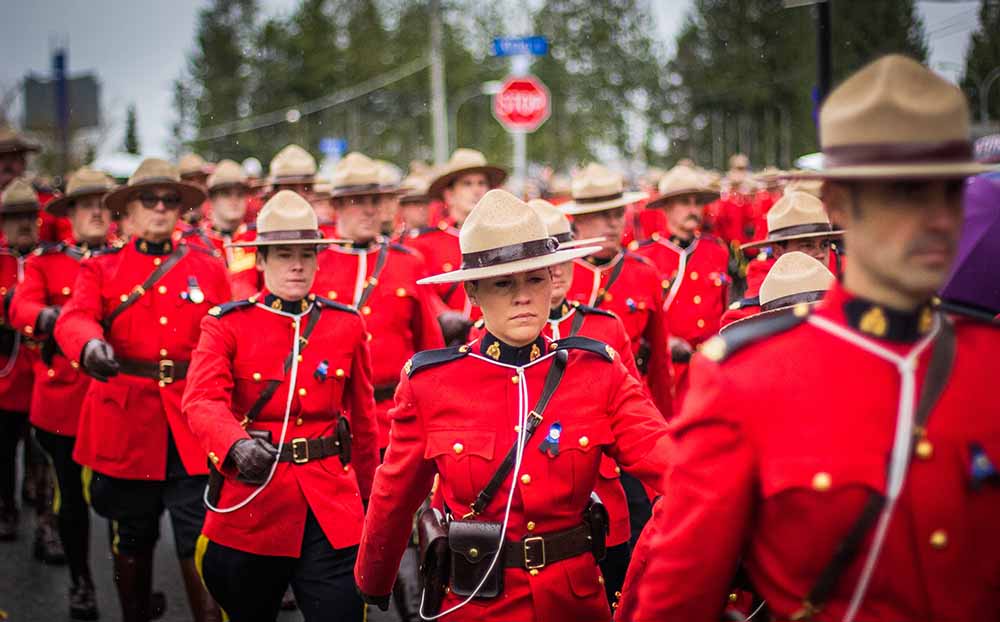Today Canadians coast to coast are left shocked, disappointed, and ashamed of their federal police service. The RCMP has had a history of problems going back decades, and now there are at least 2,300 women, so far, who have been betrayed, abused, and victimized, not only the very members with whom they swore to serve and protect the citizens of this country but by the commissioners entrusted to nurture and lead them. RCMP leadership that has ignored, willfully denied, or tolerated misogynistic, racist, and homophobic attitudes – words used by former Supreme Court Justice Michel Bastarache in his report “Broken Dreams Broken Lives“.
Justice Bastarache notes: “One of the key findings of this report is that the culture of the RCMP is toxic and tolerates misogynistic and homophobic attitudes amongst its leaders and members,” Furthermore, he has stated: “I am of the view that cultural change is highly unlikely to come from within the RCMP. It has had many years, and many reports and recommendations, and yet the unacceptable behaviour continues to occur.”
Justice Bastarache is absolutely correct that cultural change is highly unlikely to come from within the RCMP; in fact, it is impossible. And here is why.
Incidents involving officer misconduct are those where individual employees are culpable for their own conduct, and while the organization may become involved in the compensation of the employee’s misconduct, it is the employee who is culpable. Organizational due diligence requires that management examine the nature, genesis, and impact of the breach in order to identify supervisory failings, training issues, procedural practices, and to convey to other members the organization’s expectations, policies, and expected responses to similar breaches.
But when misconduct is so pervasive that it becomes a cultural component, then the failure transcends individual employees and becomes a failure of the organization itself, in other words of leadership. Where misconduct or dysfunction rises to a cultural issue the failure encompasses leadership, which must always be held to a higher standard and therefore to higher consequences.
Each and every previous RCMP Commissioner worked their way through the ranks to their divisional corner offices before landing at the RCMP headquarters in Ottawa, including:
Brenda Lucki (April 16, 2018-present)
Robert (Bob) W. Paulson (November 21, 2011 to June 30, 2017)
William J. S. Elliott (July 16, 2007 to November 20, 2011)
Beverley Busson (December 16, 2006 to June 14, 2007)
Giuliano Zaccardelli (September 1, 2000 to December 15, 2006)
Joseph Philip Robert Murray (June 25, 1994 to August 31, 2000)
Norman David Inkster (September 1, 1987 to June 24, 1994)
Robert Henry Simmonds (September 1, 1977 to August 31, 1987)
These are just the last eight commissioners, with over a hundred years of collective service, with experiences at all ranks, from across Canada, entrusted with the leadership and management of one of Canada’s most critical institutions, an institution that represents Canada in more than service but also in reputation and symbolism. And each of these eight, not to exclude earlier Commissioners, seem to be outside the realm of culpability. Whether they were not aware of the endemic, systemic, and cultural dysfunction identified by Justice Bastarache, their failure to identify, respond, and correct the misconduct is an antipathy of the very function they were sworn to provide. Each of these Commissioners utterly failed Canada.
Their failure cannot and should not be ignored, protected, or tolerated. It is these failed leaders who should bear the burden of responsibility and accountability to each of the victims identified in Justice Bastarache’s report, and the many more yet to be identified.
Paying out compensation to victims is little less than a complete cover-up, a systemic white-washing of accountability. Yes, each and every accused officer who was complicit in the utterly unmentionable, degrading, horrific, and dehumanizing acts that victimized their colleagues deserve nothing less than the severest sanctions. But this purging of the foot soldiers without holding to account leadership that was entrusted and responsible for the integrity, safety and wellbeing of the organization and its members, is to convey that leadership is above any real or fiduciary responsibility; that would be a national failure and a betrayal of the fiduciary responsibility of leadership.
The portraits of each of these commissioners now hanging in the National Headquarters of the RCMP will be a reminder of their failure to the victims and to the RCMP. These leaders have marred the integrity of the RCMP and of the office of Commissioner, and history should, if justice is to prevail, also record that these leaders were held accountable for their failures. The buck must stop at the top.
It is almost impossible to believe that Beverley Busson, now a Senator for British Columbia, was unaware of this culture during her years of service as a member or during her tenure as Commissioner. Both Beverley Busson and Lucki should have a special sense of shame for failing fellow policewomen. 
This is a shameful indictment of the membership of one of our finest institutions, an indictment of every member who felt empowered, strengthened, or somehow superior because of their cowardly, barbaric, and dehumanizing acts against fellow officers. The actions of the policemen who perpetuated the shameful harassment of fellow policewomen is particularly shameful. There is nothing manly left of these officers who should be haunted by their misconduct and ashamed to face their wives, daughters and sisters. Further, any other officer who was aware, complicit, or stood idly by during these acts of harassment and worse, should be ashamed and diminished in their integrity as a police officer, as a Canadian, and as a person.
The RCMP, but more importantly each of the commissioners I have listed above have contributed to the shaming of the RCMP, of betraying the trust of its members and the public.
Canadians, and the 2,300 victims of harassment, deserve to know what Brenda Lucki, Robert (Bob) W. Paulson, William J. S. Elliott, Beverley Busson, Giuliano Zaccardelli, Joseph Philip Robert Murray, Norman David Inkster, and Robert Henry Simmonds knew, and how much they knew, and what they did or why they did not stop this culture of torturous harassment against their own members.
Anil Anand is a research associate at the Frontier Centre for Public Policy.
Photo by Nic Amaya on Unsplash.



